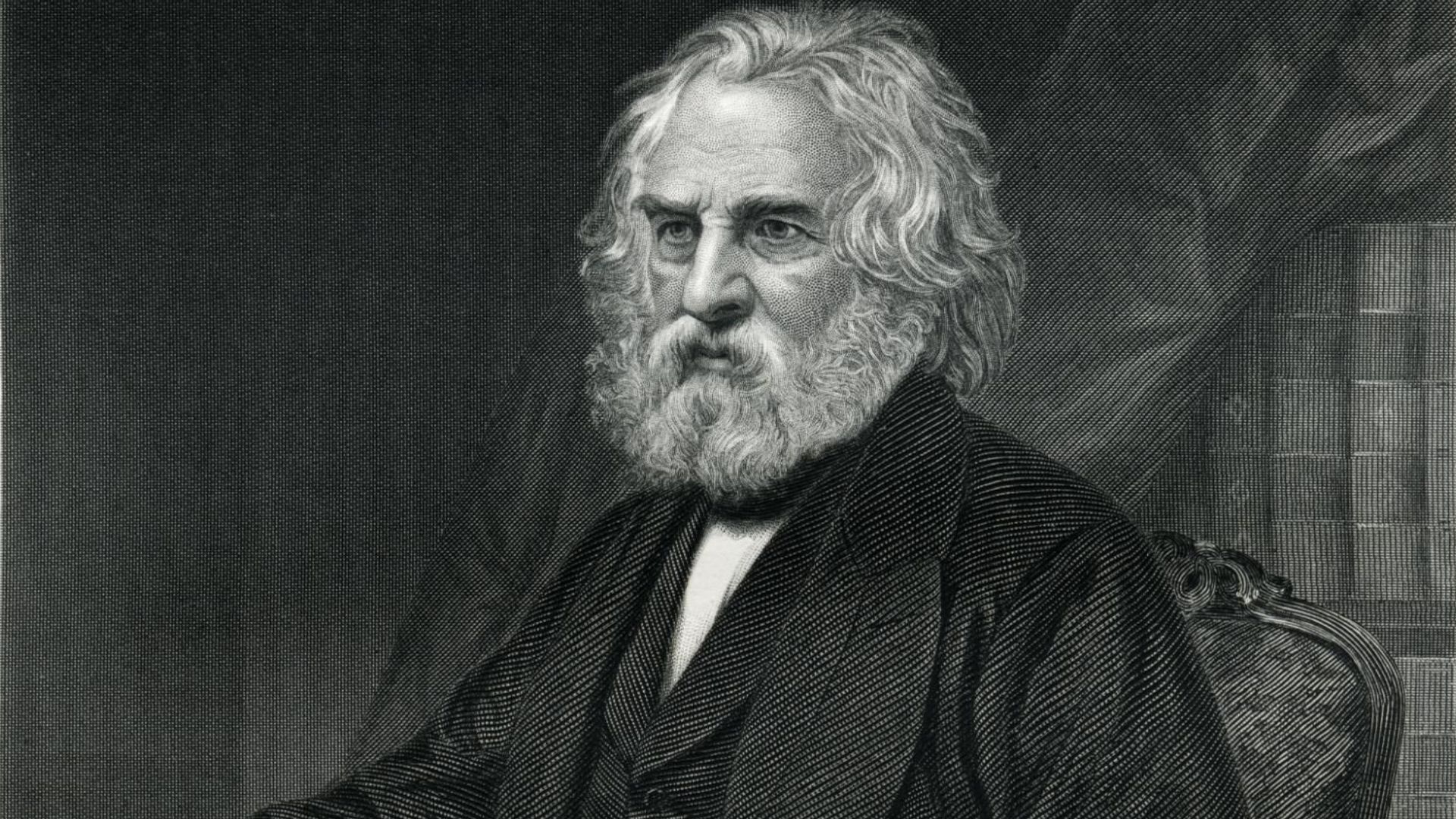Snow-Flakes. (Birds Of Passage. Flight The Second) Poem by Henry Wadsworth Longfellow
Snow-Flakes. (Birds Of Passage. Flight The Second)
Out of the bosom of the Air
Out of the cloud-folds of her garments shaken,
Over the woodlands brown and bare,
Over the harvest-fields forsaken,
Silent, and soft, and slow
Descends the snow.
Even as our cloudy fancies take
Suddenly shape in some divine expression,
Even as the troubled heart doth make
In the white countenance confession
The troubled sky reveals
The grief it feels.
This is the poem of the air,
Slowly in silent syllables recorded;
This is the secret of despair,
Long in its cloudy bosom hoarded,
Now whispered and revealed
To wood and field.
Snow-Flakes. (Birds Of Passage. Flight The Second) by Henry Wadsworth Longfellow, begins with the exquisite appealing personification “Out of the bosom of the Air/ Out of the cloud-folds of her garments shaken”. This origin point of snow extents realistically to describe snow settling “Over the woodlands brown and bare, / Over the harvest-fields forsaken”. Winter has come, harvest fields are abandoned and will yield no more while in winters frozen grips. But at present we are watching perhaps the first snow of the season, the title suggests birds of passage are still migrating, it seems a second migration flight arcs across the sky as “Silent, and soft, and slow/ Descends the snow.” Birds and farmers must abandon this land now for a season. For Longfellow who loves nature, this silent soft slow spectacle of falling snow set against a cloudy sky, is mystical. Contemplation of nature and God extends in the opening lines of the second stanza, with a childlike appreciation and wonder as Longfellow exclaims, “Even as our cloudy fancies take/ Suddenly shape in some divine expression”. The words “even as” imply an inner turmoil extended when repeated “Even as the troubled heart doth make/ In the white countenance confession”. A mystery arises with an anxious white confession not revealed, However nature absorbs the enormity of this woe written in the heavens personified as “The troubled sky reveals/ The grief it feels.” Longfellow seems to suggest the sky is troubled with the burden of snow it sheds, with a declaration, “This is the poem of the air, / Slowly in silent syllables recorded; ” the focus has shifted from snow to a transformation, metamorphosis the air is experiencing. Change, the woods stripped bare, after the glory of autumn fall, the last silent fall of leaves has an echo metaphorically implied with “Slowly in silent syllables recorded”. Was it God or nature which recorded the fall of leaves, which records now not just the fall of snow, but snow-flakes as first expressed at the beginning of this poem’s title. The season will now shift into winter. The brown bare woodlands are to now become a permanent winter white. Harvest-fields will be forsaken during the entirety of winter. Both air and contemplative brooding humanity seem to realize in “cloudy fancies” that the air now sheds in snow-flakes the first seeds of snow, that will endure here during winter. Is this another meaning of “This is the secret of despair, / Long in its cloudy bosom hoarded”? It seems so, the air seems to whisper in snowflake words the frozen despair overtaking air itself, “Now whispered and revealed/ To wood and field.” This poem can be read in multiple ways and the words are wonderful and crisp in meaning. This is a wonderful poem.
Slowly in silent syllables recorded. This line is just beautiful
This is the secret of despair. A great poem and great writing.
Our Henry had a unique way of expressing himself, which in his skilled hands is very effective. We can hear the same assonance in Hiawatha. Almost like a savage drum beat disturbing the air. While we lesser mortals have to be content witha measured pace, his staccato deliverance demands that we sit up and pay attention. Note to self. Must practice this style.
Wow - Longfellow was a pantheist? The air is writing 'poems' with 'silent syllables' (an oxymoron) to express its 'despair' and 'grief'? 'Silent, and soft, and slow' is a nice line.
This poem has not been translated into any other language yet.
I would like to translate this poem
A beautiful poem liking the snow to a poem, how lovely it is to see the snow falling in the forest and field!